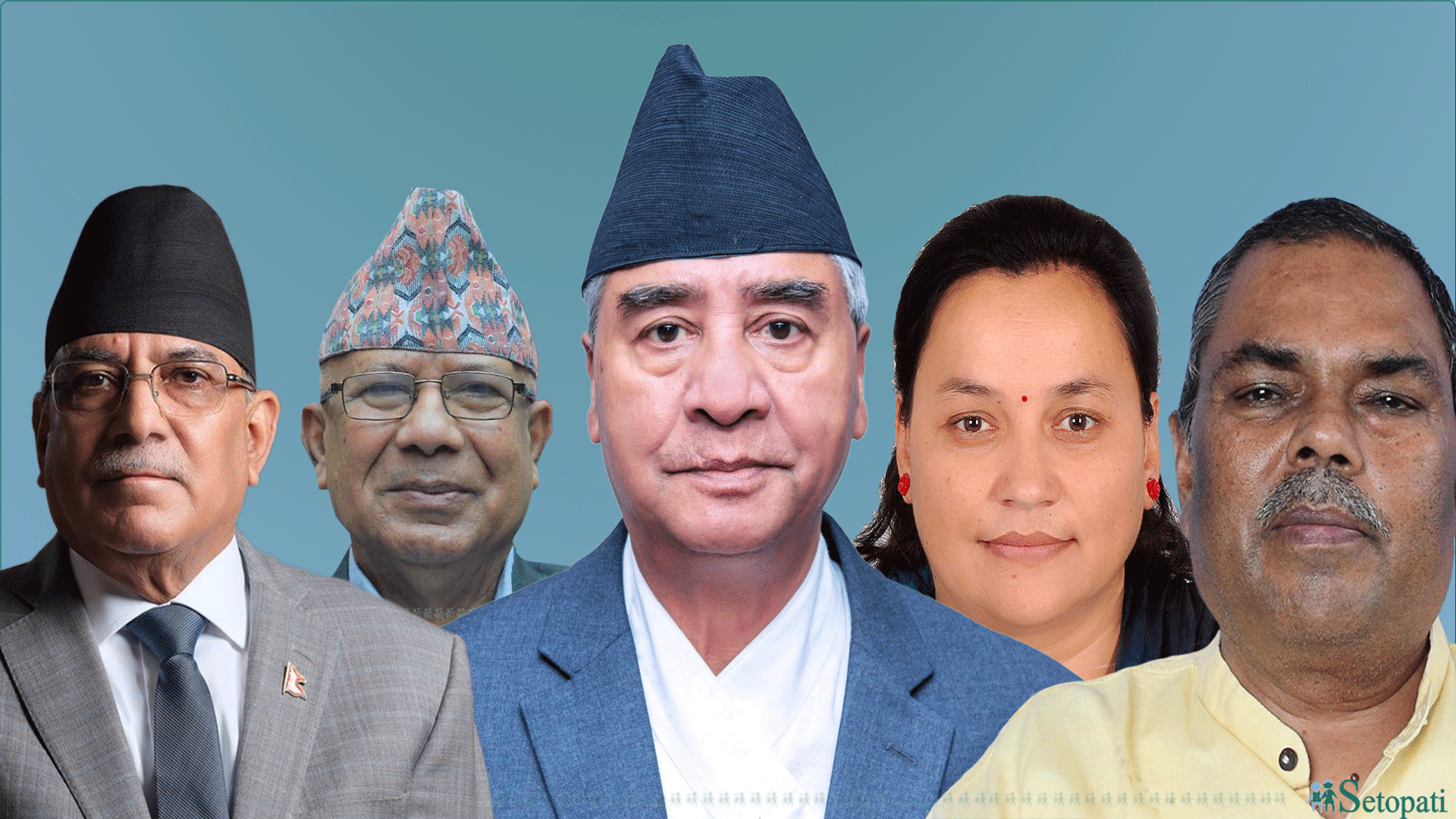Top leaders of the ruling coalition failed to reach conclusion on sharing of seats even after a four-hour meeting on Sunday.
The meeting featuring top coalition leaders including Prime Minister (PM) Sher Bahadur Deuba discussed about agreement reached until now and the issues that still need to be agreed.
Talking with reporters after the meeting CPN (Unified Socialist) leader Jhala Nath Khanal said Sunday’s meeting has ended with agreement to conclude the remaining issues in Monday’s meeting.
The task force formed under Krishna Sitaula of Nepali Congress (NC) discussed sharing of seats in detail but could not decide on the number of seats to be allotted to each coalition partner.
Nepali Congress (NC) demanded candidacy in 100 out of 165 House of Representatives (HoR) seats to be elected through the first-past-the-post electoral system in the task force. CPN (Maoist Center) similarly staked claims for 60 seats, CPN (Unified Socialist) 40, Janata Samajwadi Party (JSP) 32 and Rastriya Janamorcha two.
All the parties have agreed to lower their demands but they have yet to finalize sharing of seats.
Maoist Chairman Pushpa Kamal Dahal proposed with NC President and Prime Minister Sher Bahadur Deuba that one seat should be allotted for Janamorcha and NC should get half of the remaining 164 seats, and Maoist Center, Unified Socialist and JSP sharing the other half.
Deuba then told Dahal that NC should get 84 seats and two seats should be allotted for Mahantha Thakur and Rajendra Mahato of Loktantrik Samajwadi Party (LSP).
The task force could not decide about sharing of seats with Unified Socialist and JSP demanding more seats. Unified Socialist has demanded 40 seats but has been saying that it will not go beyond 26 while JSP, which has demanded 32, has set the bottom mark of 25.
Unified Socialist Chairman Madhav Kumar Nepal has been saying that NC should be more flexible to accommodate other parties and should not get more than 70. JSP Chairman Upendra Yadav, on the other hand, has been arguing that it will win 9-10 seats on its own and there would be no meaning of forging an electoral alliance if it gets to field candidates in only around 15 seats pointing that contesting in fewer seats may result in rebellion inside the party and may also cost the party proportional representation votes.

